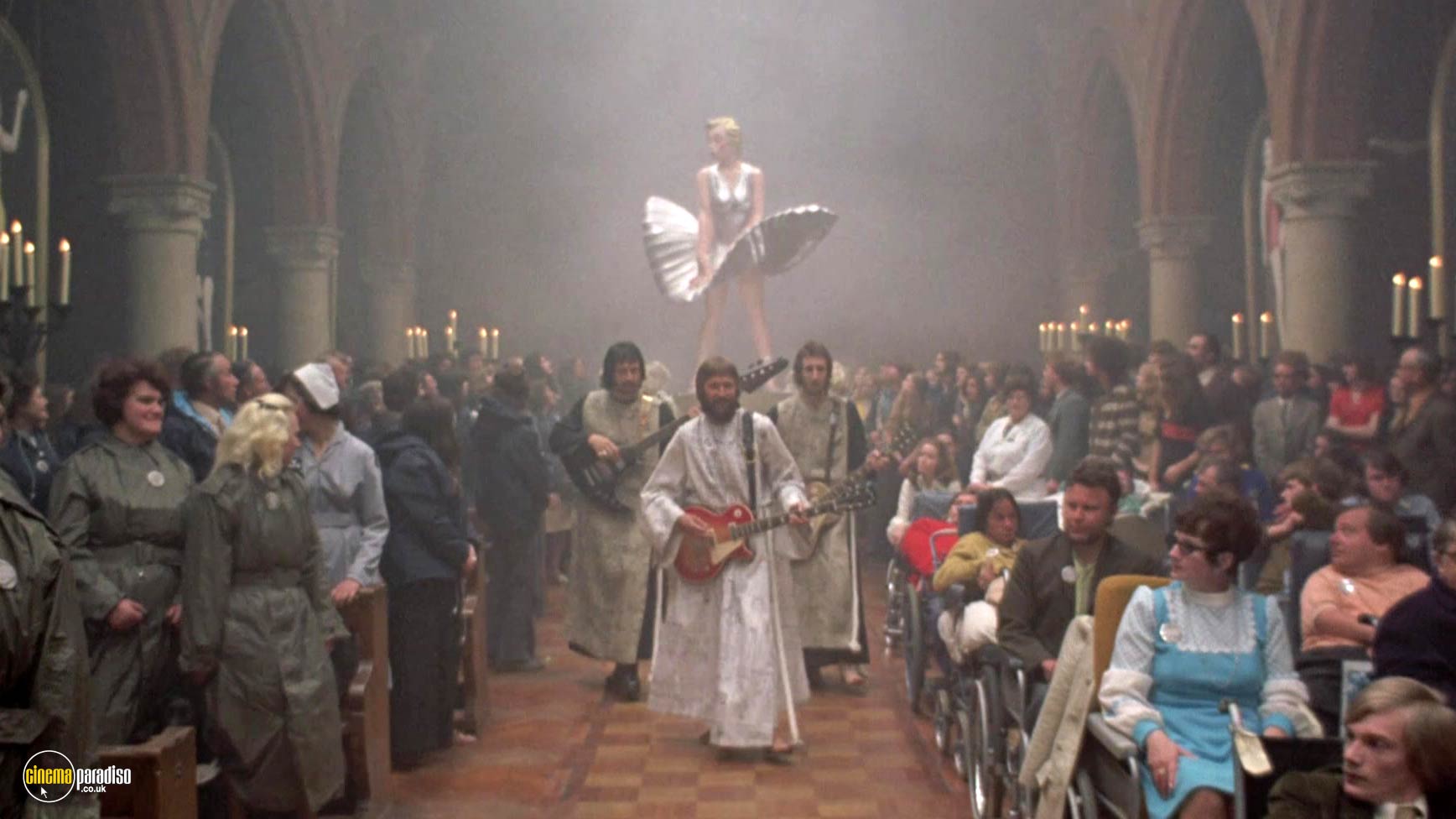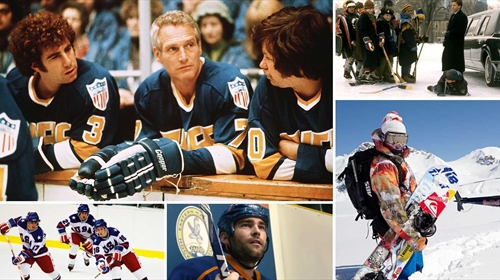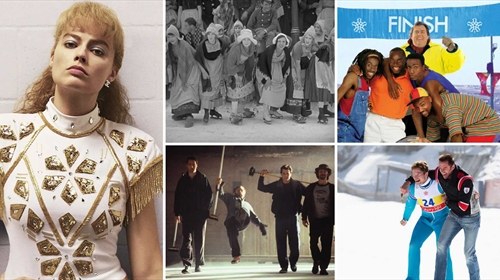As it centres on an orchestra conductor and composer whose world is turned upside down by two unexpected revelations, the French dramedy, The Marching Band, turned Cinema Paradiso's thoughts to films about classical music.
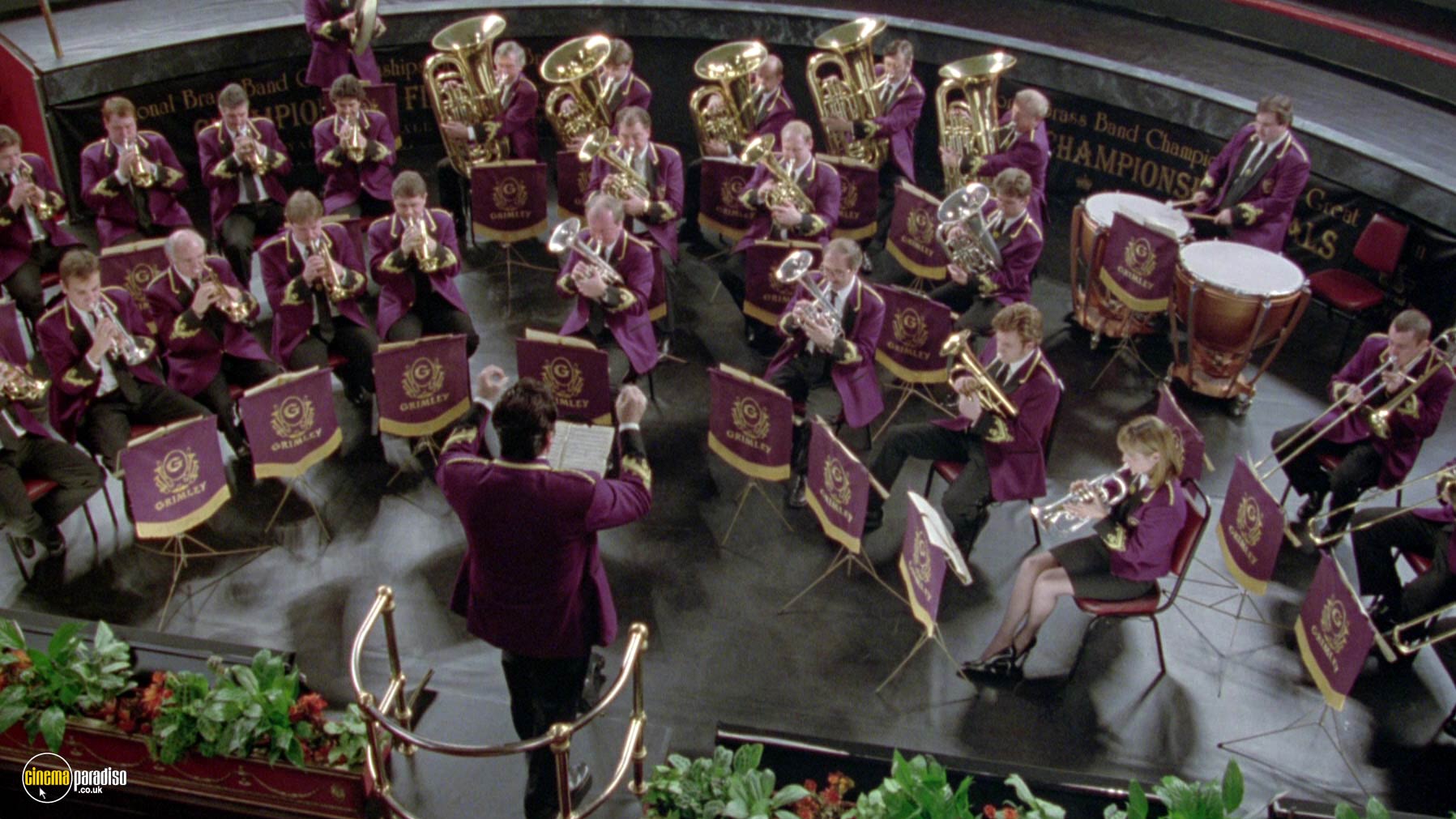
Although many critics compared Emmanuel Courcol's The Marching Band to Mark Herman's Brassed Off (1996) because it featured a brass band in an economically deprived area, the protagonist is actually a classical conductor with a penchant for jazz. Thibaut Desormeaux (Benjamin Lavernhe) is one of the world's leading conductors and he is rehearsing an orchestra for a prestigious concert in Paris when he collapses on the podium. Diagnosed with leukaemia, Thibault asks his sister to donate bone marrow, only to learn that he was adopted and that he has a younger brother in a small industrial town near Lille.
Resentful at having been discarded by Thibault's adoptive mother, school cook Jimmy Lecocq (Pierre Lottin) is initially reluctant to help. But he agrees to undergo match tests and quickly discovers that he has music in common with his sibling, as Jimmy plays trombone in the local marching band. Moreover, they share a love of jazz and, when the band's conductor gets a new job, Thibault agrees to pick up the baton as a way of thanking his newly discovered brother.
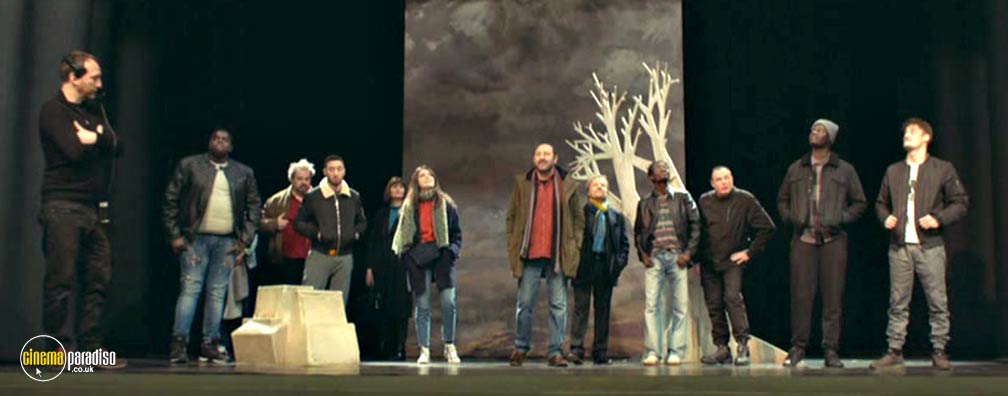
Fraternal and socio-cultural complications ensue, much as they did in Courcol's The Big Hit (2020), in which a struggling actor (Kad Merad) finds himself directing a prison drama group's production of Waiting For Godot. But, while it has its formulaic moments, The Marching Band has plenty to say about human nature, class expectation, the rights of children, and musical taste. In addition to pieces by Mozart, Mendelssohn, Debussy, and Verdi, the score also includes an unforgettable sequence involving Maurice Ravel's Bolero.
This 1928 masterwork was rehearsed by the Los Angeles Philharmonic Orchestra in Bill Fertik's Oscar-winning short, The Bolero (1973), while the commissioning of the one-movement work by Russian dancer, Ida Rubinstein (Jeanne Balibar), is the subject of Anne Fontaine's Boléro (2024), which stars Raphaël Personnaz as Ravel and which really should have received a cinema release in the UK. But British audiences haven't always taken to films about classical music, as they consider them to be intimidatingly highbrow - which, actually, is rarely the case, even when it comes to the great composers.
Bach and Mozart
Although he is principally a conductor, Thibaut Desormeaux also composes music. Even Jimmy writes a smooth jazz gem for his bandmate, Sabrina (Sarah Suco). So, we shall start this two-part survey of classical music on film by looking at some of the biopics made about the leading composers. For once, we won't venture back into the silent era, as the music would have to have been played live by a chamber ensemble, an organist, or a pianist - and that is a very different experience to listening to a recorded score.
Philipp Manning had the privilege of first playing Johann Sebastian Bach in a talkie, although Frederic Zelnik's The Dancer of Sanssouci (1932) was more interested in the relationship between Frederick the Great (Otto Gebühr) and Barberina Campanini (Lil Dagover). During the war, Eugen Klöpfer played Bach in Traugott Müller's Friedemann Bach (1941), which centred on Wilhelm Friedemann Bach (Gustaf Gründgens) and his brother, Carl Philipp Emanuel (Wolfgang Liebeneiner), and the bonds with their mother, Anna Magdalena (Lina Lossen).
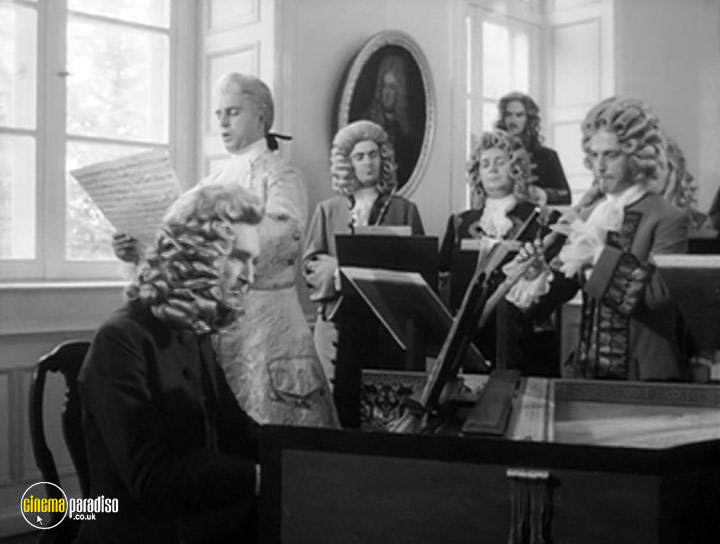
The latter is the subject of Jean-Marie Straub and Danièle Huillet's The Chronicle of Anna Magdalena Bach (1968), which can be rented from Cinema Paradiso as part of Three Films By Jean-Marie Straub and Danièle Huillet (2004). Christiane Lang plays the wife who bore Bach 13 children (seven of whom died in childhood) while he strives to establish himself as a musician and composer. Renowned harpsichordist Gustav Leonhardt portrayed Bach and played period instruments in actual locations in a film that is composed of only 80 shots. An aspect of Bach's struggle is recalled in Stuart Gillard's Bach's Fight For Freedom (1995), as the composer (Ted Dykstra) seeks to produce his own music while pandering to the taste of his patron, Prince August (Kevin Jubinville).
Failing eyesight makes it difficult for Bach (Vadim Glowna) to fulfil a commission from Frederick II (Jürgen Vogel), so he seeks help from sons Wilhelm Friedemann (Anatole Taubman) and Carl Philipp Emanuel (Paul Herwig) in Swiss director Dominique de Rivaz's Mein Name ist Bach (2003). Paired with the 2008 short, Mudanza, in a Second Run releaase, Pere Portabella's The Silence Before Bach (2007) is a bit of a cheat, as it's a rumination rather than a biopic. But there's much to enjoy in this exploration of how masterworks like 'The Goldberg Variations' retain a place in the modern world.
Few composers have amassed more biopics than Wolfgang Amadeus Mozart. In the sound era, he was notably played by Stephen Haggard in Basil Dean's Whom the Gods Love: The Original Story of Mozart and His Wife (1936). Victoria Hopper co-stars as Constance, but the film's strong point was the music conducted by Sir Thomas Beecham. Composer Alessandro Cicognini worked on the musical side of Carmine Gallone's Eternal Melodies (1940), which cast Gino Cervi as Mozart alongside Cesare Polacco as Joseph Haydn and Augusto Marcacci as Antonio Salieri.
Also produced during the war, when Austria was part of the Third Reich, Karl Hartl's Whom the Gods Love (1942) stars Hans Holt as Mozart, while René Deltgen plays Ludwig van Beethoven to show how one Germanic visionary had been influenced by another. Holt was an Austrian who appeared in over 100 films and compatriot Oskar Werner took the lead when Hartl took another tilt at the topic in Mozart (1955), which premiered at Cannes and centred on the composer's psychological state when writing The Magic Flute (1791). Albin Skoda featured as Salieri and Cinema Paradiso users can rent Ingmar Bergman's 1975 and Kenneth Branagh and Stephen Fry's 2006 interpretations of the opera.
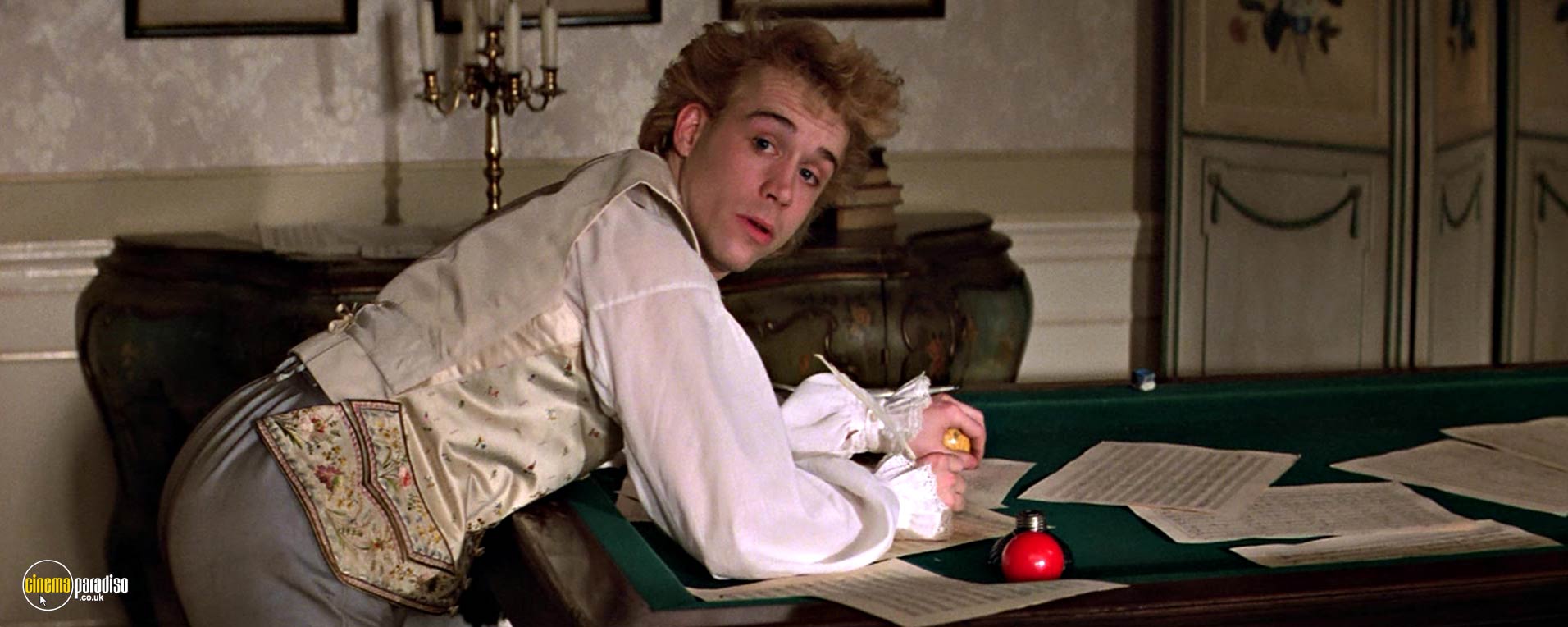
In Pupi Avati's Noi tre (aka The Three of Us, 1984), the focus falls on the 14 year-old Mozart (Cristopher Davidson) being paraded around Bologna by his father, Leopold (Lino Capolicchio). But the film was overshadowed by Miloš Forman's adaptation of Peter Shaffer's 1979 play, Amadeus, which had itself been influenced by Alexander Pushkin's 1830 stage work, Mozart and Salieri. Receiving eight Oscars, including Best Picture, Director, and Actor, the story reveals the envious loathing felt by Antonio Salieri (F. Murray Abraham), the court composer to Joseph II of Austria (Jeffrey Jones), towards the younger, wilder, and markedly more talented Wolfgang Amadeus Mozart (Tom Hulce), With Roy Dotrice as Leopold and Elizabeth Berridge as Constanze, this is the most commercially successful film about a composer of all time and it was also released in a three-hour director's cut.
Despite being over 40 years old, Forman's classic set a benchmark that is unlikely to be surpassed. However, Alexander Lutz took the lead in Czech maestro Juraj Herz's Wolfgang A. Mozart (1991), which was made to mark the bicentenary of the composer's death. Subsequently, Aneurin Barnard portrayed Mozart having a dangerous 1788 liaison with a young soprano named Zuzanna (Morfydd Clark) in John Stephenson's Interlude in Prague (2017), Daniel Dorr took a cameo opposite Alex Winter and Keanu Reeves in Dean Parisot's Bill & Ted Face the Music (2020), while Dávid Kerek graced the dramatic reconstructions in Alice Smith's BBC series, Mozart: Rise of a Genius (2024), which also features Mátyás Tóth as Salieri and Rebecka Johnston as Nannerl Mozart.
Nannerl had enjoyed her own moment in the spotlight in René Féret's Mozart's Sister (2010), which starred Marie Feret as Maria Anna, who is five years older than her brother (David Moreau) and struggles to convince their father, Leopold (Marc Barbe) of her talent as a musician and a composer. This would make a splendid double bill with Fanny: The Other Mendelssohn (2023), Sheila Hayman's documentary tribute to her
great-great-great-grandmother, Fanny Mendelssohn Hensel. But women composers have been short-changed by the cinema, with neither Margarethe von Trotta's Vision - From the Life of Hildegard von Bingen (2009), with Barbara Sukowa, or Zvonimir Berkovic's Countess Dora (1993), about 1910s Croatian composer Dora Pejacevic (Alma Prica), being available to rent.
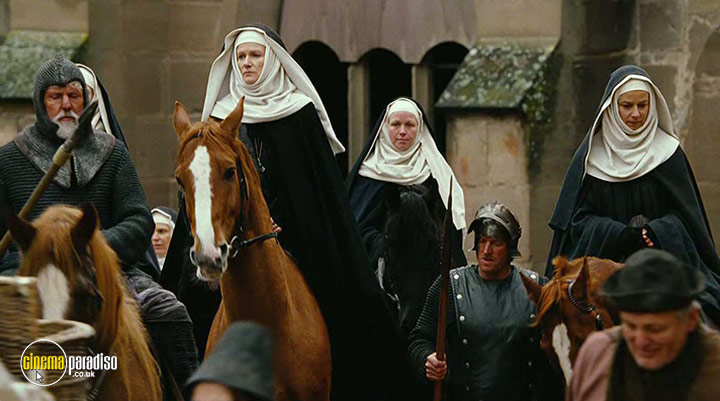
Paganini and Verdi
The son of a Genoese ship's chandler who sold musical instruments on the side, Niccolò Paganini became a virtuoso violinist who composed a number of enduringly popular works, with Sergei Rachmaninov's variation on the '24th Caprice' becoming familiar as the theme of The South Bank Show (1978-2023).
Paganinin was first played in the sound era by Andreas Weißgerber in Frank Clifford's Paganini in Venice (1929), an experimental sound film that was made in Weimar Germany. His feature bow came in the guise of Iván Petrovich in E.W. Emo's Paganini (aka I Liked Kissing Women, 1934), which was adaptated from a 1925 operetta by Franz Lehár. However, Paganini kept cropping up in supporting roles, notably to composer Vincenzo Bellini, whose problems writing his 1831 opera, Norma, form the background of Carmine Gallone's Casta Diva (1935), which won the award for the Best Italian Film at the Venice Film Festival.
Sandro Palmieri played Bellini alongside Gualtiero Tumiati as Paganini and Achille Majeroni as Gioacchino Rossini. When Gallone made the English version, The Divine Spark, Marta Eggerth retained the part of Maddalena Fumaroli, but Phillips Holmes stepped in as Bellini, while Hugh Miller and Edmund Breon respectively played Paganini and Rossini. Gallone remade Casta Diva in Technicolor in 1954, with Danilo Berardinelli as Paganini, Maurice Ronet as Bellini, and Fausto Tozzi as Gaetano Donizetti.
By this time, Maurice Schutz had guested as Paganini alongside Jean-Louis Barrault's Hector Berlioz in Christian-Jacque's La Symphonie fantastique (1942), which really ought to be on disc in the UK. But Cinema Paradiso members can marvel as Stewart Granger's fingerwork to Yehudi Menuhin's inspired playing in Bernard Knowles's The Magic Bow (1946), which presented the efforts of the fictitious Jeanne de Vermond (Phyllis Calvert) to get Paganini to play for the pope.
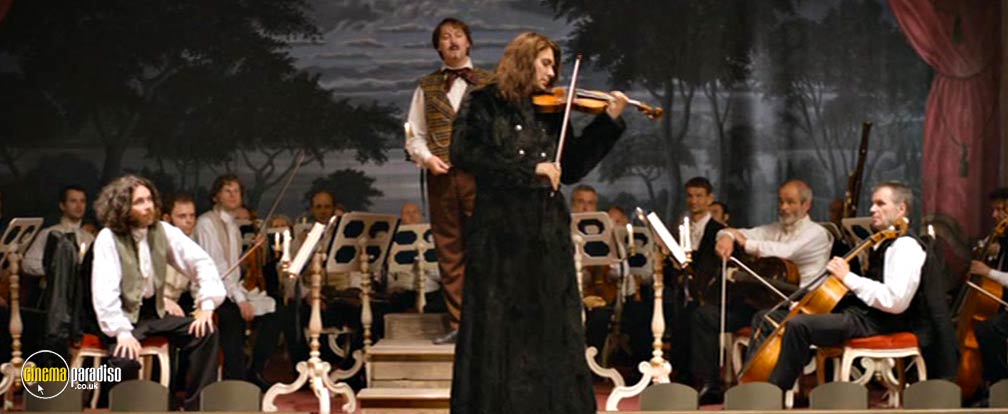
The following year, Karel Dostal appeared as Paganini in Václav Krška's Bohemian Rapture (1947), which charted the Italian's rivalry with Czech violinist, Josef Slavík (Jaromír Spal), who was on friendlier terms with Chopin (Václav Voska). Directing himself in what turned out to be his last screen outing, Klaus Kinski took the title role in Paganini (1989), which examines his romances with Napoleon's sister, Elisa Bonaparte (Eva Grimaldi) and Antonia Bianchi (Debora Caprioglio). This was criticised for being excessively saucy and decadence was also to the fore in Bernard Rose's The Devil's Violinist (2013), as Paganini (renowned musician, David Garrett) comes to London and amasses gambling debts while romancing his manger's soprano daughter, Charlotte Watson (Andrea Deck).
Although numerous films have been made from his operas, Giuseppe Verdi has figured far less regularly in film than his violin-wieding compatriot. Fosco Giachetti starred in Carmine Gallone's Giuseppe Verdi (1938), which stressed the composer's patriotism, while focussing on his marriage to soprano Giuseppina Strepponi (Gaby Morlay) and his relationship with a number of famous writers and composers like Donizetti (Lamberto Picasso). He was played by Emilio Cigoli alongside Loris Gizzi's Rossini in Raffaello Matarazzo's Giuseppe Verdi (aka The Life and Music of Giuseppe Verdi, 1953), a domestic box-office hit that starred Frenchman Pierre Cressoy opposite Anna Maria Ferrero as Margherita Barezzi and Gaby André as Giuseppina Strepponi.
English actor Ronald Pickup was front and centre in Renato Castellani's mini-series, The Life of Verdi (1982-83), which was narrated by Burt Lancaster and featured Ugo Bologna as Gaetano Donizetti and ballerina Carla Fracci as Giuseppina Strepponi.
Beethoven and Schumann
Over half a dozen silent films were made about Ludwig van Beethoven, with Fritz Kortner starring in Hans Otto's The Life of Beethoven (1927). Harry Baur took the lead in the first talkie biopic, Abel Gance's Beethoven's Great Love (1936), which turned out to be music, as he resisted the charms of two Viennese students, Thérèse de Brunswick (Annie Ducaux) and Juliette Guicciardi (Jany Holt), who had become devoted to him.
As he was deaf, the Nazis opted against depicting Beethoven as a patriotic visionary, although Steven Geray played him as being open to jazz in Josef Berne's Heavenly Music (1943), which won the Academy Award for Best Live-Action Short. Austrian director Walter Kolm-Veltée had Beethoven (Ewald Balser) being inspired by Napoleon rather than besotted cousins Therese von Brunswick (Marianne Schönauer) and Giulietta Guicciardi (Judith Holzmeister) in Eroica (1949), which debuted at Cannes. And Sacha Guitry also commented on the connection, as the great Erich von Stroheim essayed the composer in Napoléon (1955), a three-hour epic that cast Daniel Gélin and Raymond Pellegrin as the younger and older Bonaparte.
Aimed at children and first shown on television in the United States, Georg Tressler's The Magnificent Rebel (1962) Disneyfied the story, as Beethoven (Karlheinz Böhm) befriends a blind boy during his bid to become the new Mozart. We much prefer John Cleese playing the composer being bothered by a rude mynah bird, his distracting wife (Graham Chapman), and rat-catcher Colin 'Chopper' Mozart (Michael Palin) in the 1970 'Archaeology Today' episode of Monty Python's Flying Circus (1969-74).
Soviet actor Donatas Banionis played Beethoven in East German Horst Seemann's
Beethoven - Days in a Life (1976), which centred on his time in Vienna in the 1810s. This took things far more seriously than Paul Morrissey's Beethoven's Nephew (1985), which starred Jane Birkin and Nathalie Baye among the women introduced by the composer (Wolfgang Reichmann) to his nephew, Karl (Dietmar Prinz).
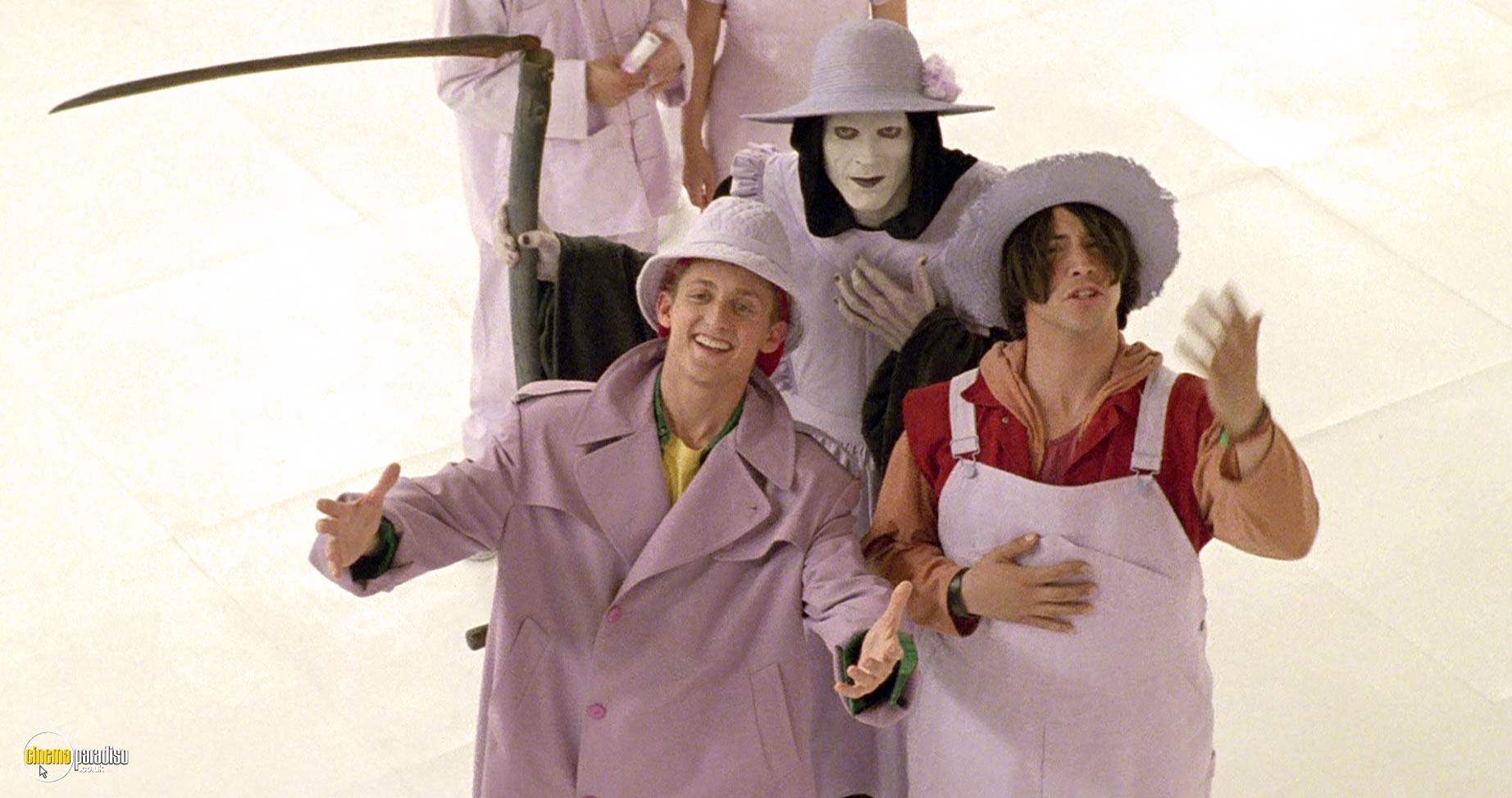
Clifford David's Beethoven ('Beeth-Oven') is one of the historical figures abducted by slackers Alex Winter and Keanu Reeves in Stephen Herek's Bill & Ted's Excellent Adventure (1989). Director David Devine remains on the humorous side in Beethoven Lives Upstairs (1992), an Emmy-winning show for kids that made Neil Munro's Beethoven a noisy neighbour in 1810s Vienna.
But the tone was decidedly more sombre in Bernard Rose's Immortal Beloved (1994), which is set in 1827 and follows secretary Anton Schindler (Jeroen Krabbé) in his bid to execute the will left behind by the recently departed Beethoven (Gary Oldman), who is seen in flashbacks with such female admirers as Anna-Marie Erdödy (Isabella Rossellini), Giulietta Guicciardi (Valeria Golino), and sisters Josephine and Theresa von Brunsvik (Geno Lechner and Claudia Solti).
The BBC was behind both Simon Cellan Jones's Eroica (2003) and the multi-directed Beethoven (2005), which respectively saw Ian Hart and Paul Rhys play the composer. Ed Harris took over for the final three years that saw him become increasingly dependent upon copyist Anna Holz (Diane Kruger) in Agnieszka Holland's Copying Beethoven (2006). But his entire life comes under the spotlight, as he is played from childhood to maturity by Colin Pütz, Anselm Bresgott, and Tobias Moretti in Niki Stein's Louis van Beethoven (2020), which was produced to mark the 250th anniversary of Beethoven's birth in Bonn. Perhaps someone is already working on an opus to mark the 200th anniversary of the passing of a tormented genius in 2027?
Robert Schumann died in Beethoven's birthplace at the age of 46. His name will forever be associated with fellow pianist, Clara Wieck, who lived for another four decades before dying in 1896. They were played by Hilde Krahl and Mathias Wieman in Harald Braun's Dreaming (1944), which also features Ullrich Haupt as Johannes Brahms and Emil Lohkamp as Franz Liszt. Robert Walker and Henry Daniell took the latter roles in Clarence Brownn's Song of Love (1947), an MGM biopic that ought to be available, as Katharine Hepburn is so good as Clara encouraging Paul Henreid's Robert to believe in himself as a composer.
Despite the timeless nature of the love story, the pair were rather neglected by film-makers for the next 60 years. However, Helma Sanders-Brahms more than atoned with her final feature, Beloved Clara (2008), which paired Martina Gedeck and Pascal Greggory in 1840s Düsseldorf, where Malik Zidi's Brahms proves a boon companion, as Schumann becomes terminally dependent upon laudanum while suffering from composer's block.
Chopin and Liszt
The majority of films about Frédéric Chopin have centred on his fabled friendships. But Polish director Aleksander Ford turns him into a revolutionary zealot in Young Chopin (1952), which is set in the 1820s and shows Fryderyk Chopin (Czeslaw Wollejko) as a champion of the oppressed masses. Sensing Communist propaganda at the end of the HUAC witchhunt, American critics compared the film unfavourably to Charles Vidor's A Song to Remember (1945), a Technicolor saga that has mentor Joseph Elsnor (Paul Muni) seeking to protect piano prodigy and patriot Frederic Chopin (Cornell Wilde) from the Tsarist authorities by sweeping him to Paris, where he comes under the influence of convention-challenging novelist, George Sand (Merle Oberon).
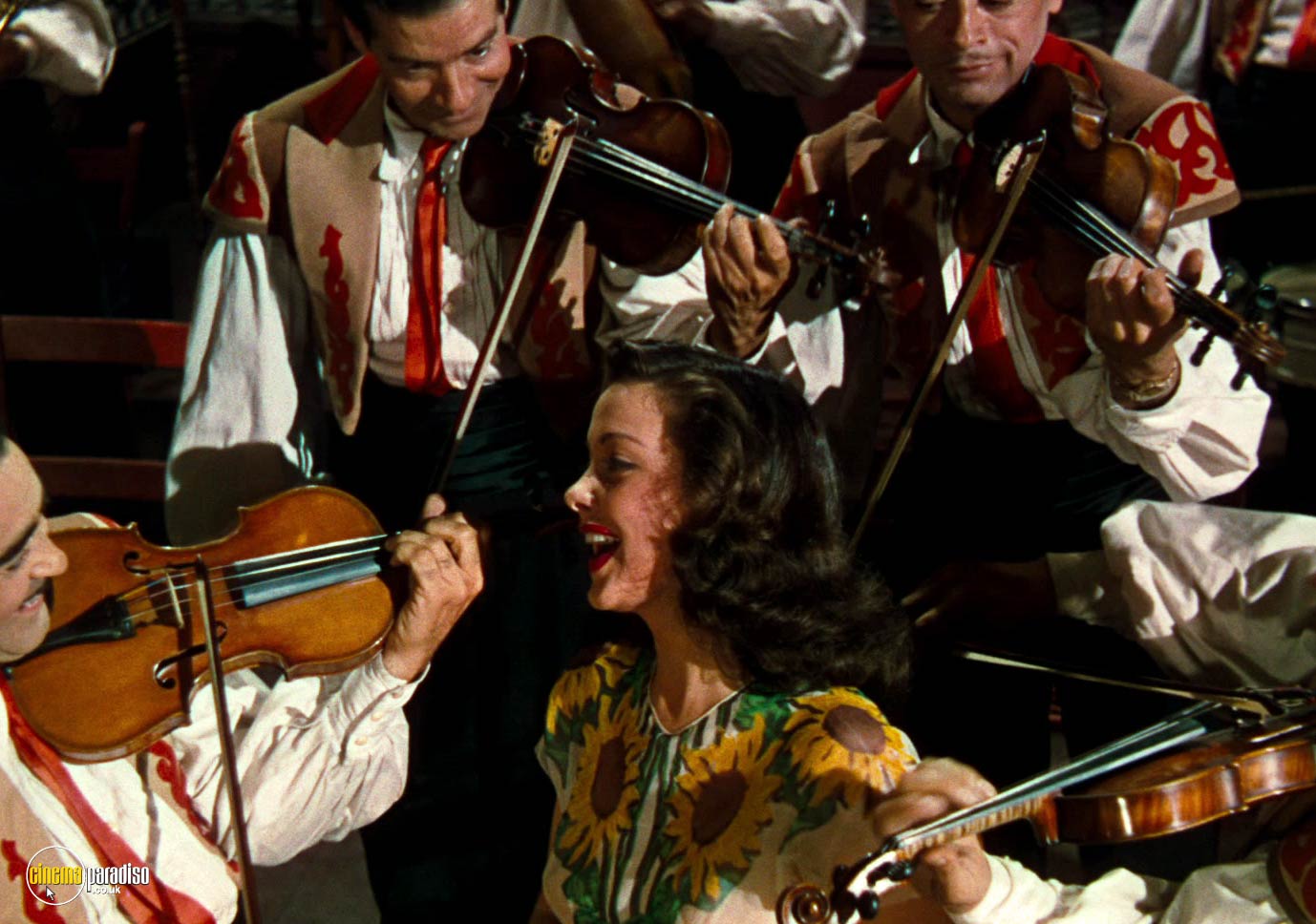
Nominated for six Academy Awards, this was as much an anti-Russian tract as a biopic. But it took the music seriously. Having just guested alongside Gene Kelly and Frank Sinatra in George Sidney's Anchors Aweigh (1945), Spanish pianist José Iturbi sat in for Wilde during the musical sequences, although the hands in close up actually belong to Hungarian pianist, Ervin Nyiregyházi. Despite a piano being taken to a remote monastery so the tubercular composer could work, music takes a back seat in Jaime Camino's Winter in Mallorca (1970), as the islanders view the ailing Chopin (Christopher Sandford) and the cigar-smoking Sand (Lucia Bosè) with suspicion.
James Lapine's Impromptu (1991) takes us back to the start of the liaison, as Baroness Amantine-Lucile-Aurore Dupin (Judy Davis) adopts the Sand persona and starts wearing male attire around 1830s Paris. However, Marie Catherine Sophie, Comtesse d'Agoult (Bernadette Peters), the mistress of composer Franz Liszt (Julian Sands), offers her some friendly advice after she becomes obsessed with the dashing Chopin (Hugh Grant). This very British costume drama has since been followed by Jerzy Antczak's Chopin: Desire For Love (2002), which cast Piotr Adamczyk and Danuta Stenka as the lovers, and Michal Kwiecinski's Chopin, A Sonata in Paris, which stars Eryk Kulm (Chopin), Joséphine de La Baume (Sand), and Victor Meutelet (Liszt) and is due for release later this year.
We shall come on to the most notorious film about Franz Liszt in a concluding section on Ken Russell's composer films. But the Hungarian superstar pianist has been the subject of several other features, including Mexican director José Bohr's Dreams of Love (1935), which traced the Parisian friendship between Liszt (Claudio Arrau) and George Sand (Julieta Palavicini). German Christian Stengel's Dreams of Love (1947) revisited the territory with Pierre Richard-Willm and Mila Parély, while Imre Sinkovits took the title role in Hungarian Márton Keleti's Dreams of Love - Liszt (1970), an epic account of the composer's romance with Carolyne zu Sayn-Wittgenstein (Ariadna Shengelaya).
The princess was essayed by Colette Marchand in André Haguet's At the Order of the Czar (1954). But, while she retained her place in the German-language version, Hungarian Rhapsody, Jacques François was replaced as Liszt by local star, Paul Hubschmid. The best-known actor to take the role, however, is Dirk Bogarde, who made a rare excursion to Hollywood to headline Charles Vidor's Song Without End (1960), a veritable who's who of famous faces that was completed by George Cukor after Vidor died during the shoot. At start of the film, Liszt is happily living away from the limelight with Countess Marie d'Agoult (Geneviève Page). But Chopin (Alexander Davion) and Sand (Patricia Morison) lure him back to Paris, where he attracts the attention of Princess Carolyne Wittgenstein (Capucine) and Richard Wagner (Lyndon Brooks) - more of whom anon.
Schubert and Strauss
Frustratingly, none of the various lives of Franz Schubert is available on disc. Indeed, the majority have been forgotten since the Austrian was first played by Paul Muni (as one of seven characters, including Napoleon Bonaparte) in Bernard Viertel's early talkie, Seven Faces (1929). Subsequently, the composer has been played by Carl Jöken in Richard Oswald's Schubert's Dream of Spring (1931), Richard Tauber in Paul L. Stein's Blossom Time, Nils Asther in James Tinling's Love Time (both 1934), Bernard Lancret in Jean Boyer's Serenade (1940), Alan Curtis in Reinhold Schünzel's The Great Awakening (aka New Wine & The Melody Master, 1941), Franz Böheim in Emmerich Hanus's It's Only Love (1947), Heinrich Schweiger in Walter Kolm-Veltée's Franz Schubert (1953), and Claude Laydu in Glauco Pellegrini's Symphony of Love (1954).
The great Willi Forst made his directorial debut with Gently My Songs Entreat (1933), which starred Hans Jaray as Schubert. He reprised the role in Anthony Asquith's English-language version of the film, Unfinished Symphony, which featured Cecil Humphreys as Antonio Salieri. In 1970, Ettore Maria Fizzarotti reworked Forst's original as Angeli senza paradiso (aka Symphony of Love, 1970), a musicarello romance that cast Al Bano as Schubert.
Staying in Austria, we can bring you Alfred Hitchcock's Waltzes From Vienna (1934), which is available to rent on The Jessie Matthews Revue: Vol. 2 (2015). During the interview recalled in Kent Jones's Hitchcock/Truffaut (2015), the Master of Suspense admitted only taking on this escapist musical because he had nothing better to do. Edmund Gwenn stars as Johann Strauss, who sends son, Schani (Esmond Knight), to work in a bakery to take his mind off the fool notion of trying to compose 'The Blue Danube'.
Fantasy trumps facts in this instance. But melodrama was to the fore in most Strauss sagas. Johann Strauss (Anton Walbrook) and Joseph Lanner (Paul Hörbiger) tussled for Viennese supremacy in Ludwig Berger's Waltz War (1933) before Hörbiger took the Strauss role in E.W. Emo's Immortal Waltz (1939) and Walbrook reprised it in Emil E. Reinert's Vienna Waltzes (1951). Edmund Schellhammer was Strauss Senior in Willi Forst's Viennese Girls (1945), in which the director played overshadowed composer, Carl Michael Ziehrer.
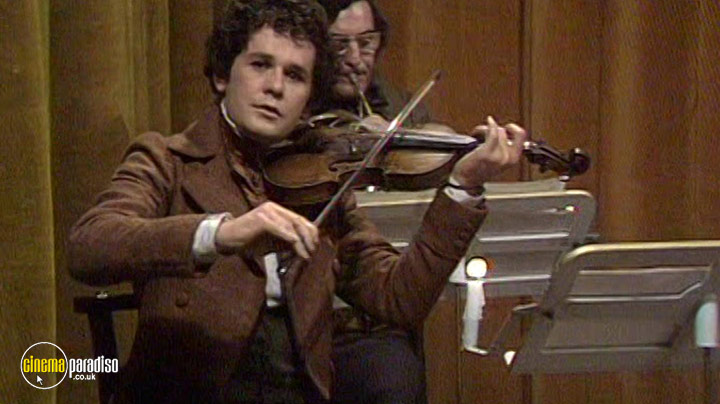
Father and son were essayed by Hans Junkermann and Gustav Fröhlich in Conrad Wiene's A Waltz By Strauss (1931), while Nigel Patrick and Horst Buchholz took over in Andrew L. Stone's The Great Waltz (1972). This title had earlier been used, as Fernand Gravet portrayed Johann Strauss II in Julien Duvivier's The Great Waltz (1938). Bernhard Wicki stepped up in Paul Verhoeven's The Eternal Waltz (1954). But the entire clan is on show in the ITV series, The Strauss Family (1972), which saw Eric Woofe depict Johann Strauss I as a petty tyrant within his own household. Stuart Wilson (Johann II), Nikolas Simmonds and Louis Selwyn (Josef), and Tony Anholt (Eduard) played his sons, while the wonderful Anne Stallybrass received a BAFTA nomination for her performance as their mother, Maria Anna.
Wagner and the Rest
Richard Wagner was first portrayed on film during the early silent era, when Italian composer Giuseppe Becce took the title role in Carl Froelich's The Life of Richard Wagner (aka Silent Wagner, 1913), which marked the 30th anniversary of the composer's death. Yet four decades would pass before Paul Bildt appeared as Wagner in Helmut Käutner's Ludwig II: Mad Emperor and Alan Badel played him in William Dieterle's Magic Fire (1955). This Hollywood biopic co-starred Yvonne De Carlo as Minna Planer and featured Carlos Thompson and Charles Régnier as Franz Liszt and Giacomo Meyerbeer respectively.
The Bavarian connection meant that Trevor Howard was invited to play Wagner in Luchino Visconti's Ludwig, while Gerhard März did the honours in Hans-Jürgen Syberberg's epic, Ludwig: Requiem For a Virgin King (both 1972). The period's finest Wagnerian offering, however, was Tony Palmer's Wagner (1983), which saw Richard Burton imperiously lead an all-star ensemble through a 466-minute epic that cast Gemma Craven as Minna Planer and Vanessa Redgrave as Cosima von Bülow, as well as Ekkehard Schall as Liszt and Vernon Dobtcheff as Meyerbeer.
Liszt was enacted by Anton Diffring in Peter Patzak's Wahnfried (1987), which teamed Otto Sander and Tatja Seibt as Wagner and Cosima. But he was presented as a political schemer in Peter Sehr's and Marie Noelle's Ludwig II (2012), which shows Wagner (Edgar Selge) seeking to manipulate the king around time of Otto von Bismarck's wars of German unification.
Tony Palmer went back to the Restoration to profile Henry Purcell (Michael Ball) in the splendid England, My England (1995), which really should be on disc, as should Norman Walker's The Great Mr Handel (1942), which was made during the war to show how Georg Friedrich Handel (Wilfrid Lawson) left Brandenburg-Prussia to compose 'The Messiah' in Georgian Britain. It's more explicable, however, that Petr Václav's Il Boemo (2022), about 18th-century Czech opera composer Josef Myslivecek, isn't on offer. But it's about time Steven Williams's Chevalier (2022) turned up on disc in the UK, if only for the moment when the Guadeloupe-born Joseph Bologne (Kelvin Harrison, Jr.) asks if he can play with Mozart (Joseph Prowen). The son of a French plantation owner and an African slave, Bologne would become the Chevalier de Saint-Georges and wouldn't be quite so gracious towards fellow composer, Christoph Willibald Gluck (Henry Lloyd-Hughes), as France lurched towards revolution.
A longtime associate of Sergei Eisenstein, Grigori Alexandrov became one of the USSR's finest musical makers and he cast Boris Smirnov as mid-19th-century Russian composer Mikhail Glinka in Man of Music (1952). Alexandrov and Eisenstein knew what it was like to be wary of Joseph Stalin, as did Sergei Prokofiev, who scored Alexander Nevsky (1938) and Ivan the Terrible (1944-58) and was profiled in Andrei Nekrasov's The Prodigal Son (1991). Terence Rigby plays the Soviet dictator in Tony Palmer's Testimony (1988), as he repeteadly finds fault with the music of Dmitri Shostakovich (Ben Kingsley), who is supported by his friend, Aram Khachaturian (William Squire).
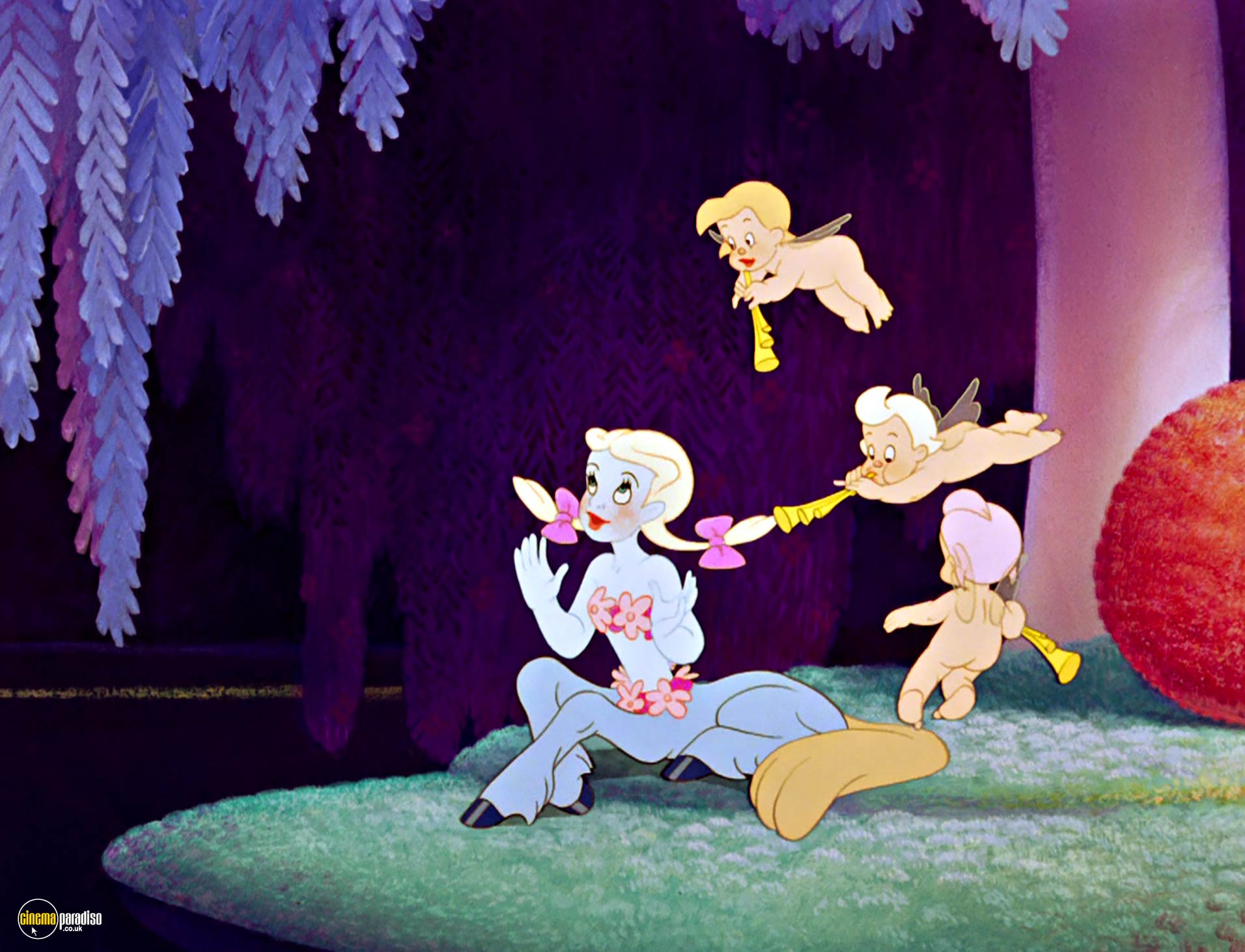
Spanish pianist and composer Isaac Albéniz was treated to two biopics in 1947, with Julio Peña fronting Juan de Orduña's Serenata española and Pedro López Lagar getting all post-Romantic in Luis César Amadori's Albéniz. Another name many may have to Google is Hungarian operetta composer Emmerich Kalman, who is played by Gerhard Riedmann in Harald Philipp's The Csardas King (1958). Having been profiled in Tony Palmer's Stravinsky: Once At a Border (1982), Igor Stravinsky was played by Mads Mikkelsen opposite Anna Mouglalis in Jan Kounen's Coco Chanel & Igor Stravinsky (2009). The Russian later laboured in Hollywood after Walt Disney had invited him to work on Fantasia (1940). But his music wasn't used, as was also the case with Henry King's The Song of Bernadette and Robert Stevenson's Jane Eyre (both 1943).
Two American composers round off this segment (and how annoying is it that neither film is on disc in the UK?) John Philip Sousa (Clifton Webb) is the subject of Henry Koster's Stars and Stripes Forever (1952), with one of the March King's best-known tunes, 'The Liberty Bell', being instantly recognisable because of its use over the credits of Monty Python's Flying Circus. George Gershwin's compositions also captured the mood of his times and the songs he composed with his lyricist brother, Ira, can be heard in such classics as George Stevens's Shall We Dance (1937), Vincente Minnelli's An American in Paris (1951), and Stanley Donen's Funny Face (1957). But, while his masterpiece decorates Woody Allen's Manhattan (1979), we can't bring you Irving Rapper's Rhapsody in Blue (1945), a biopic of the genius (Robert Alda) who died of a brain tumour at the age of just 38 in 1937.
Classical Russell
No one approached classical music biopics quite like Ken Russell. While working for the BBC, he produced a documentary triptych that is available to Cinema Paradiso users through the BFI collection, Ken Russell: The Great Composers (2016). Having changed the nature of arts documentaries by having George McGrath play Sir Edward Elgar in the dramatic reconstructions in Elgar (1962), Russell teamed with Melvyn Bragg to write The Debussy Film (1965), in which Oliver Reed played Claude Debussy in a film-within-the-film. These two items were made for Huw Weldon's Monitor series. But Song of Summer (1968) came under the Omnibus banner and focussed on the friendship that developed in Northern France between Frederick Delius (Max Adrian) and Eric Fenby (Christopher Gable).
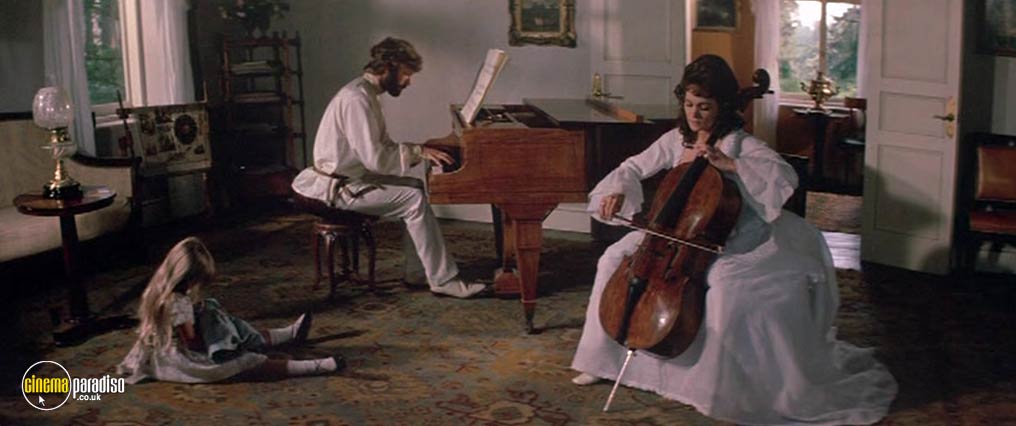
Now established as a feature director, Russell continued to be fascinated by classical music and examined the relationship between gay composer Peter Ilych Tchaikovsky (Richard Chamberlain) and his nymphomaniac wife, Antonina Milyukova (Glenda Jackson), in The Music Lovers (1971). This plays hard and loose with the facts, but there had been nothing like the scene in which the couple cavorted on the floor of a train compartment in Igor Talankin's Tchaikovsky (1970), a sanitised biopic that had starred Innokentiy Smoktunovskiy and Antonina Shuranova. Sadly, this two-time Oscar-nominated feature isn't currently available, although Kirill Serebrennikov's Tchaikovsky's Wife (2022) is a bigger miss, as Alyona Mikhailova excels as an Antonina Miliukova who refuses to give up on her husband (Odin Lund Biron), even though he goes out of his way to avoid her.
The marriage between Gustav and Alma Mahler (Robert Powell and Georgina Hale) had its own problems, as Russell pointed out in Mahler (1974), which flashes back as the couple take a train to Vienna. The city provides the fin-de-siècle setting for Bruce Beresford's Bride of the Wind (2001), which chronicles the affairs between Alma Schindler (Sarah Wynter) and Mahler (Jonathan Pryce), Walter Gropius (Simon Verhoeven), Oskar Kokoschka (Vincent Perez), and Franz Werfel (Gregor Seberg).
We have already mentioned a number of biopics of Franz Liszt, but nothing comes close to Russell's Lisztomania (1975), which draws on Marie d'Agoult's 1848 memoir of her affair with the composer. The pair are played by Roger Daltrey (The Who singer with whom Russell had just made Tommy, 1975) and Fiona Lewis, who was best knownn for her softcore porn films. Paul Nicholas played Richard Wagner, while there were cameos from Murray Melvin as Hector Berlioz, Andrew Faulds as Johann Strauss II, Kenneth Colley as Frédéric Chopin, and Otto Diamant as Felix Mendelssohn. Ringo Starr even popped up as Pope Pius IX, although he was more familiar with Beatlemania, which erupted a century later in Liverpool.
